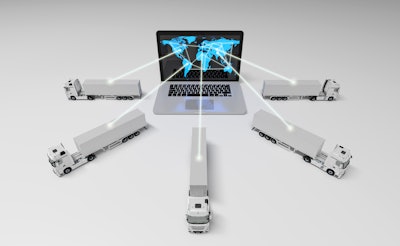
Fleet managers continue to face the day-to-day challenges of staying up-to-date and in compliance with regulatory changes along with continuously improving driver knowledge and skills. That’s according to the newly released study conducted by the J. J. Keller Center for Market Insights, the research arm of J. J. Keller & Associates, Inc.
The study, The State of Fleet Management: Insights on Priorities for Today’s Fleet Managers, is based on a survey fielded in February 2024. It is the fourth annual study the J. J. Keller Center for Market Insights has conducted on this topic.
The study highlights trending concerns from 2021 to 2024, and takes a close look into fleet managers’ current challenges:
- Struggling with hours-of-service (HOS) limits and use exemptions jumped 13% from 2023 to 2024.
- Finding and retaining high-quality drivers remained a top item from prior years and grew 12% from 2023.
- Understanding how the Federal Motor Carrier Safety Administration (FMCSA) regulations specifically apply to them stayed on the list of top concerns, increasing 9% year-over-year.
Daren Hansen, senior industry advisor at J. J. Keller, says, “Despite widespread use of electronic logs, hours-of-service compliance remains a key issue, with HOS violations making up over 40% of all roadside violations and nearly 1 in 5 violations found during audits in 2023. Toss in a variety of exceptions, and it’s no wonder that drivers struggle with HOS compliance.”
Key Takeaways:
- For two years in a row, the most important aspects of FMCSA compliance remain unchanged. Forty-seven percent (47%) of fleet managers who participated in the study stated that “Having accurate and well-organized Driver Qualification files” was the most important aspect of FMCSA compliance. This was up 5% from 2023.
- Comments from respondents regarding the most challenging aspects of their job included, “Staying up to date with changing DOT and OSHA rules” and “Ensuring all parts of compliance are monitored and records centrally retained.”
- Sixty-five percent (65%) of those surveyed agree that continuous learning is “mostly” or “completely” emphasized by their company.
- When it comes to driver training, respondents believe it’s most important that their training is specific to the unique needs of their drivers, operations, vehicles or industry (47%) and that drivers apply what they learn in training (45%).
- Additional top training concerns included:
- Having accurate and well-organized training records (30%)
- Having engaged and interesting training (28%)
- Being able to prove, if needed, that a driver understood the training content (25%)
- The most important aspect of overall safety that fleet managers want to see is leadership consistently showing that safety is important (51%). A close second is employees knowing that they are valued, and that is why fleet managers want them to be safe (46%).














![Pros To Know 2026 [color]](https://img.sdcexec.com/mindful/acbm/workspaces/default/uploads/2025/08/prostoknow-2026-color.mduFvhpgMk.png?ar=16%3A9&auto=format%2Ccompress&bg=fff&fill-color=fff&fit=fill&h=135&q=70&w=240)


